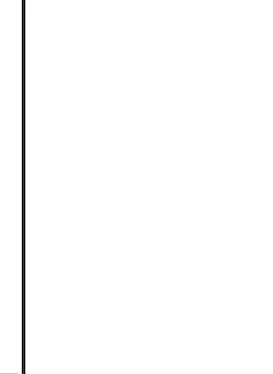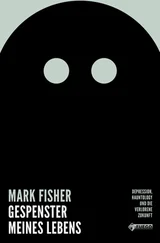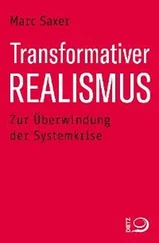Mark Fisher - Capitalist Realism - Is There No Alternative?
Здесь есть возможность читать онлайн «Mark Fisher - Capitalist Realism - Is There No Alternative?» весь текст электронной книги совершенно бесплатно (целиком полную версию без сокращений). В некоторых случаях можно слушать аудио, скачать через торрент в формате fb2 и присутствует краткое содержание. Жанр: Старинная литература, на английском языке. Описание произведения, (предисловие) а так же отзывы посетителей доступны на портале библиотеки ЛибКат.
- Название:Capitalist Realism: Is There No Alternative?
- Автор:
- Жанр:
- Год:неизвестен
- ISBN:нет данных
- Рейтинг книги:4 / 5. Голосов: 1
-
Избранное:Добавить в избранное
- Отзывы:
-
Ваша оценка:
- 80
- 1
- 2
- 3
- 4
- 5
Capitalist Realism: Is There No Alternative?: краткое содержание, описание и аннотация
Предлагаем к чтению аннотацию, описание, краткое содержание или предисловие (зависит от того, что написал сам автор книги «Capitalist Realism: Is There No Alternative?»). Если вы не нашли необходимую информацию о книге — напишите в комментариях, мы постараемся отыскать её.
Capitalist Realism: Is There No Alternative? — читать онлайн бесплатно полную книгу (весь текст) целиком
Ниже представлен текст книги, разбитый по страницам. Система сохранения места последней прочитанной страницы, позволяет с удобством читать онлайн бесплатно книгу «Capitalist Realism: Is There No Alternative?», без необходимости каждый раз заново искать на чём Вы остановились. Поставьте закладку, и сможете в любой момент перейти на страницу, на которой закончили чтение.
Интервал:
Закладка:
In any case, it is not as if the 'light' inspection is in any sense preferable for staff than the heavy one. The inspectors are in the college for the same amount of time as they were under the old system. The fact that there are fewer of them does nothing to alleviate the stress of the inspection, which has far more to do with the extra bureaucratic window-dressing one has to do in anticipation of a possible observation than it has to do with any actual observation itself. The inspection, that is to say, corresponds precisely to Foucault's account of the virtual nature of surveillance in Discipline And Punish. Foucault famously observes there that there is no need for the place of surveillance to actually be occupied. The effect of not knowing whether you will be observed or not produces an introjection of the surveillance apparatus. You constantly act as if you are always about to be observed. Yet, in the case of school and university inspections, what you will be graded on is not primarily your abilities as a teacher so much as your diligence as a bureaucrat. There are other bizarre effects. Since OFSTED is now observing the college's self-assessment systems, there is an implicit incentive for the college to grade itself and its teaching lower than it actually deserves. The result is a kind of postmodern capitalist version of Maoist confessionalism, in which workers are required to engage in constant symbolic self-denigration. At one point, when our line manager was extolling the virtues of the new, light inspection system, he told us that the problem with our departmental log-books was that they were not sufficiently self-critical. But don't worry, he urged, any self-criticisms we make are purely symbolic, and will never be acted upon; as if performing selfflagellation as part of a purely formal exercise in cynical bureaucratic compliance were any less demoralizing.
In the post-Fordist classroom, the reflexive impotence of the students is mirrored by reflexive impotence of the teachers. De Angelis and Harvie report that
practices and requirements of standardisation and surveillance obviously impose a huge burden of work on academics and few are happy about it. There have been a number of responses. Managers have frequently suggested there is no alternative (TINA) and have perhaps suggested that what we need to do is 'work smarter, not harder'. This seductive slogan, introduced to dampen staff resistance to further change which in their (our) experience has a devastating effects on working conditions, attempts to couple the need for 'change' (restructuring and innovation) in order to meet the budget pressure and increase 'competitiveness', with staff's resistance not only to worsening of their condition of work, but also to the educational and academic 'meaninglessness' of the'changes' .
The invocation of the idea that 'there is no alternative', and the recommendation to 'work smarter, not harder', shows how capitalist realism sets the tone for labor disputes in postFordism. Ending the inspection regime, one lecturer sardonically remarked, seems more impossible than ending slavery was. Such fatalism can only be challenged if a new (collective) political subject emerges.
7
..
.if you can watch the overlap of one reality with another': capitalist realism as dreamwork and memory disorder
'Being realistic' may once have meant coming to terms with of a reality experienced as solid and immovable. Capitalist realism, however, entails subordinating oneself to a reality that is infinitely plastic, capable of reconfiguring itself at any moment. We are confronted with what Jameson, in his essay 'The Antimonies Of The Postmodern', calls'a purely fungible present in which space and psyches alike can be processed and remade at will'. The 'reality' here is akin to the multiplicity of options available on a digital document, where no decision is final, revisions are always possible, and any previous moment can be recalled at any time. The middle manager I referred to above turned adaptation to this 'fungible' reality it into a fine art. He asserted with full confidence a story about the college and its future one day -what the implications of the inspection were likely to be; what senior management was thinking; then literally the next day would happily propound a story that directly contradicted what he previously said. There was never a question of his repudiating the previous story; it was as if he, only dimly remembered there ever being another story. This, I suppose, is 'good management'. It is, also, perhaps the only way to stay healthy amidst capitalism's perpetual instability. On the face of it, this manager is a model of beaming mental health, his whole being radiating a hail-fellow-well-met bonhomie. Such cheerfulness can only be maintained if one has a near-total absence of any critical reflexivity and a capacity, as he had, to cynically comply with every directive from bureaucratic authority. The cynicism of the compliance is essential, of course; the preservation of his 60s liberal self-image depended upon his 'not really believing' in the auditing processes he so assiduously enforced. What this disavowal depends upon is the distinction between inner subjective attitude and outward behavior I discussed above: in terms of his inner subjective attitude, the manager is hostile, even contemptuous, towards, the bureaucratic procedures he supervises; but in terms of his outward behavior, he is perfectly compliant. Yet it is precisely workers' subjective disinvestment from auditing tasks which enables them to continue to perform labor that is pointless and demoralizing.
The manager's capacity to smoothly migrate from one reality to another reminded me of nothing so much as Ursula Le Guin's The Lathe of Heaven. It is a novel about George Orr, a man whose dreams literally come true. In time-honored fairy tale fashion, however, the acts of wish fulfillment quickly become traumatic and catastrophic. When, for instance, Orr is induced by his therapist, Dr Haber, into dreaming that the problem of overpopulation is solved, he wakes to find himself in a world in which billions have been wiped out by a plague; a plague that, as Jameson put it in his discussion of the novel, was 'a hitherto nonexistent event which rapidly finds its place in our chronological memory of the recent past'. Much of the power of the novel consists in its rendering of these retrospective confabulations, whose mechanics are at once so familiar -because we perform them every night when we dream -and so odd. How could it ever be possible for us to believe successive or even co-extensive stories that so obviously contradict one another? Yet we know from Kant, Nietzsche and psychoanalysis that waking, as much as dreaming, experience, depends upon just such screening narratives. If the Real is unbearable, any reality we construct must be a tissue of inconsistencies. What differentiates Kant, Nietzsche and Freud from the tiresome cliche that 'life is but a dream' is the sense that the confabulations we live are consensual. The idea that the world we experience is a solipsistic delusion projected from the interior of our mind consoles rather than disturbs us, since it conforms with our infantile fantasies of omnipotence; but the thought that our so-called interiority owe its existence to a fictionalized consensus will always carry an uncanny charge. This extra level of uncanniness is registered in The Lathe of Heaven when Le Guin has Orr's reality-warping dreams witnessed by others -the therapist, Haber, who seeks to manipulate and control Orr's ability, and the lawyer, Heather Lelache. What, then, is it like to live through someone else's dream coming true?
[Haber] could not go on talking. He felt it: the shift, the
arrival, the change.
Читать дальшеИнтервал:
Закладка:
Похожие книги на «Capitalist Realism: Is There No Alternative?»
Представляем Вашему вниманию похожие книги на «Capitalist Realism: Is There No Alternative?» списком для выбора. Мы отобрали схожую по названию и смыслу литературу в надежде предоставить читателям больше вариантов отыскать новые, интересные, ещё непрочитанные произведения.
Обсуждение, отзывы о книге «Capitalist Realism: Is There No Alternative?» и просто собственные мнения читателей. Оставьте ваши комментарии, напишите, что Вы думаете о произведении, его смысле или главных героях. Укажите что конкретно понравилось, а что нет, и почему Вы так считаете.












